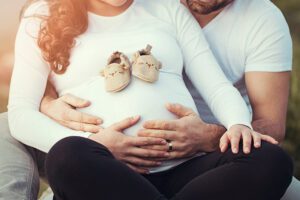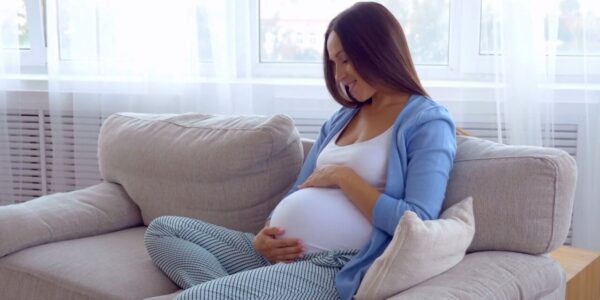Having a baby is always a great moment in life for every mom & Dad. If you plan to have children or expand your family, you may have heard a lot about the “wisdom” of time. When you are full of energy, please be younger! Please wait a moment so that you can be more financially stable! So… what is it? When is the best time to have a baby? The answer you may already know well: there is no one, best age to get pregnant or have kids.
There is no perfect age to have children, so maybe stop this thinking now. Every woman’s body and life situation are different. However there is one truth that is hard to swallow; a woman cannot give birth forever.
The fact is that some ages are better than others are-at least if you are trying to get pregnant. However, understanding fertility can help you make the choice that is best for you.
Table of Contents
The Right Age to Get Pregnant
Only you and your small circle of trust will know when the right time is. The decision to start a family should base on many factors, including age, and whether you are willing to be a parent. Preparation can include financial and emotional preparation for having a baby.
A frank conversation with your gynecologist and primary care provider is very important for making healthy decisions and planning for pregnancy and delivery.

These numbers decline with age, but according to the National Institutes of Health (NIH), once a girl enters puberty and begins to release these eggs and start menstruation, she can become pregnant.
When does Fertility Start to Decline?
When there is a conversation about the best time to have children, most of them revolve around fertility, which is a problem. Women are the most fertile and are most likely to get pregnant when they are in their 20s. At the age of 25, the chance of trying to conceive after three months is about 20%.
Fertility is at the age of 32, gradually began to decline, and after the age of 35, the rate of pregnancy decline accelerated.
At the age of 35, the chance of conception after three months of trying was about 12%. Then, the ability of women naturally conceive in their 40s was sharp decline.
Most women in their 40s can still conceive and give birth healthy, but the risks are greatly increased. These risks may include caesarean section, premature delivery, low birth weight, birth defects and stillbirth, as well as gestational diabetes and preeclampsia.
Even then, this doesn’t mean that a woman can’t have a baby if she waits. As age and risk increase, the likelihood of a woman becoming pregnant decreases because her body has adapted to this risk.
However, there is no maximum age limit for childbirth, the oldest record in the world. The age is 66. Modern medicine and in vitro fertilization can reach any age.
The Risks of having Child with Down Syndrome in different Ages
Moreover, if you do become pregnant in your thirties, it may bring more risks: for example, women over the age of 35 have a higher chance of stillbirth, and a higher risk of chromosomal abnormalities such as Down syndrome.
According to research, older women are also at risk for preterm birth, preeclampsia (dangerous high blood pressure) and gestational diabetes.
However, the good news is also ahead, that older mothers can still have healthy pregnancies and healthy babies. Also, biology does not consider the social factors that lead to delayed pregnancy.
The Best Age to having a Baby
Your twenties may be the best age for you to have a baby. What if you still want to crawl out of student debt. On the other hand, you are trying to find a partner in the era of swipes.
Women are richer in their 20s, but this may not be the best time to conceive in terms of personal life. If you know that you will have children in the future, your twenties are a good time to start planning.
Your gynecologist can conduct a physical assessment and order an anti-Müllerian hormone (AMH) test to find out how much your ovarian reserve (that is, how many eggs you have left in the bank). Knowing how you work can help you decide when the right age to conceive is.
Fertility isn’t the Only Thing to Consider
However, finance and job security also have a lot to do with preparation. These may push up the scale of waiting. Studies show that children born to older and more capable parents will do better in later life, and parents who have children before they financially prepared usually better than those without children do.
And financial security is only part of the psychological preparation that must do to have a child. If you are not in a healthy state, it will difficult to take care of your children.
At every stage of a woman’s life, her mental health and well-being are important. Having good family support, stress relief, adequate sleep and exercise, and a healthy diet all contribute to overall health. Again, it’s overall to keep in touch with her healthcare provider to resolve any issues.
This number is rising; it was 24.9 in 2000 and 21.4 in 1970. The delay is due to various socio-economic reasons, including women’s greater participation in the labor market since the 1970s and the high cost of childcare.
However, this also shows that fertility is not the only way to study the optimal age for having children.


Leave a Reply